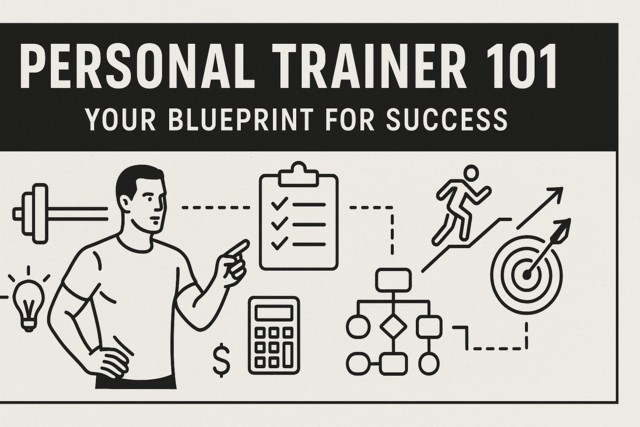One of the most problematic parts of being a coach is that your clients can become despondent during the job search process. They can feel like giving up, or they might reach a point at which they feel they can either be happy with a job or they can make money.
Not both.
As a career coach, your job is to teach your clients that this is simply not the case. They can make money and be happy at their work, but this might be something they need to work on personally.
Optimism has been seen for too long as an attitude of those who simply have no skills and want to succeed. This is far from the case. When clients are optimistic about their future, not only will they find exactly what they are looking for but those who seek to hire them will also be happy with the results of the employee search.
WHY MONEY AND HAPPINESS CAN GO HAND IN HAND
What your clients need to realize at this point in the career search is that not all of the rules they have applied to themselves have to continue to be true. They might have had experiences in the past that have caused them to feel that high-paying jobs are going to be miserable jobs, but this past does not have to dictate their future.
In stepping into a new role and a new line of work, clients can begin to hesitate to believe things will change. Then they end up feeling just as lost as they were before they talked to you.
While you will work with clients primarily to get them to their desired career paths, you still want to prepare them for long-term success. Just getting the job is not enough.
Teaching your client that money and happiness can go hand in hand can be a little abstract, even a little "New Age" at times. A lot of connecting these two dots and realizing they can support each other will come from the mere idea of being more positive in life.
Helping your clients see the positive side of their success and its results in their life will allow them to continue to feel happy with the work you have done together, and it will allow them to continue to be happy with the career they have found and cultivated.
Here are some reasons you can share with your clients to ensure they continue to remember that money and happiness can work hand in hand:
- Those who are happiest at work, do the best work. Those who are passionate about what they do and how they do it will do the best work and be happy doing it. Those who do the best work are the ones who get raises and get promoted.
- Employers want to pay energetic employees more. Employers do not want to pay a lot to the people who are just making it through the day, but they do reward those who are happy.
- When an employee is happy, the money is less important. If client are happy at a job, they will not need additional money just to motivate them. They will be motivated by the work they do.
Money and happiness can and do go hand in hand. However, clients need to be willing to take an active role in cultivating their happiness. This means they need to begin creating a positive attitude.
A NEW ATTITUDE
Even if your clients now have the best possible job available, they need to ensure they keep it. Though they might be perfectly suited to the tasks and tailored to the skill set, they need to ensure their positive attitude is one that continues to help them as they work and grow in their new life.
A positive attitude does not mean that a client needs to be happy all of the time. This is not realistic. It means that a client might begin to look for positive angles on any problem, in any situation, etc. Doing this creates an environment of can do rather than cannot do.
Here are some of the ways in which clients can ensure they are creating a positive attitude from this point forward:
- Look at problems as opportunities. This has been said time and time again, but when clients can begin to look at their issues as times when they can really shine, this is going to lighten their mood and impress their bosses.
- Focus on what is possible. In the event of a problem, have the client think about what is possible, rather than what is not. Clients might even list the things they can do in order to remind them they are not as stuck as they seem.
- Have a positive support team. By associating with others who are positive, clients will be able to maintain their positive attitude. Encourage your client to seek out a positive team of co-workers and managers who will ensure they are looking at the bright side.
- Brainstorm often. Many times, focusing on the negative side of a situation is the result of not seeing all of the possible solutions. By taking time to brainstorm each day, clients will be able to see as many sides to a situation as possible, helping them realize they are able to do so much more than it seemed at first.
- Take time out of each day for positive thoughts. For just a few minutes each day, clients should focus on all of the good things in their workday and in their life. This will help them to stay positive about their work and about their actions.
Positive attitudes take time to develop, no matter how positive a person wants to be. With time and practice, a positive attitude will become as natural as breathing for your client.
WHEN THE JOB HUNT IS LONGER THAN EXPECTED
You might also run into the situation as a career coach when your clients are having trouble staying motivated and positive during their job search. It may be that the job search is taking too long, or the client is simply having trouble believing he or she will find anything.
This is where you can shine as a career coach.
Sometimes, the job search can take longer than anyone expected. Clients might be concerned they are not finding the sorts of jobs they desire. Instead of simply giving up or becoming disheartened, it is time to sit down with your client for an honest conversation.
Here are some questions to ask to steer clients in the right direction:
- How often have you been applying for jobs?
- Have you been building your personal brand?
- How is your r�sum� looking?
- Where do you feel you are lacking?
- How are your interviews going?
These are simple questions that often clients are not honestly asking themselves. They are looking to you to help them have a better understanding of their job search process.
By sitting down with them during a coaching session and looking at what they have been doing and how it is working for them, you can begin to see whether they need to change course.
It might be simply a matter of needing to have the client improve in one or more of their weaker spots. Then they will find the success they want. However, they may need you to point out what is going wrong.
What is the future going to be like for you? After all, this is going to be your job, not just a way of helping others. Whether you choose to coach part time or full time, it will help you to be prepared for your career just as much as you are helping your clients be prepared.
As of February 2010, the unemployment rate in the United States, according to U.S. Bureau of Labor statistics, was 10.4 percent. The unemployment rate has been steadily rising since early 2009, and projections are that the unemployment rate will continue to rise for a bit.
Most of these lost jobs are the result of downsizing and outsourcing, which leaves many a professional person with limited options in terms of job hunting. While many workers may be highly skilled, they might not be able to find the jobs they want.
Just as some people are highly skilled in some areas but not others, career coaches are skilled and trained in the areas where many job seekers are not. Though you might think anyone can find a job, this is just not the case. Because you are going to have a lot of experience helping various people find the jobs they want, you will more likely be successful than someone who looks for a job only a few times in his or her life.
However, that is actually not the correct idea anymore.
Some experts have been quoted as saying that a person can expect to have more than 10 careers in a lifetime. This is a vast change from previous generations in which a person had one career from the time she or he left school until retirement.
Things are changing quickly and, while it might seem that this is not a change for the better, it provides a career coach with many opportunities to help others.
Even some companies find that hiring career coaches can be helpful to their organizations. Why?
- Happy employees are more likely to be at work every day.
- Satisfied employees are more productive.
- Engaged employees help companies make more money.
Though it can be difficult to be precise in just how helpful a career coach can be, more companies and people are taking coaching seriously. Some companies are bringing in coaches as a part of their human resource development programs, as well as to help employees who have been laid off and need to find a new line of work.
As a career coach, you have a duty to yourself as much as you have a duty to your clients. You need to make sure that you are providing services that help clients in a variety of ways.
Here are some ideas of how you can be a coach with plenty to offer to clients:
- An assessment consultation: By offering an initial consultation with a client, you can begin to point out what the person might be lacking in his or her personal job search. You might offer a free 10-minute consultation on the phone or by e-mail to help clients see what you have to offer and whether you will be a good fit for their needs.
- Road map seminars: Offering standalone seminars can attract curious clients to your services, while also offering them a tool they can use on their own. If the clients need more guidance, you can recruit them from these classes.
- Interview and r�sum� services: Sometimes clients feel they just need to be prepped for their interviews or when they write their r�sum�s. This can be a service you offer by itself or along with the coaching services to help provide the complete package for clients.
- Job hunt strategy meetings: Just sitting down with clients to discuss the different job hunt strategies they might take can help them begin to see the direction in which they need to go.
You want to focus on the coaching aspect of your business; but the more you offer, the better your service will be for your clients. This strategy will keep you in business as well.
Your future as a career coach does not have to be based on the idea that the economy must be bad. In fact, career coaching today might be focused on helping people get the jobs they want. You might want to develop the side of coaching that works with clients who simply are not happy with their work situation and want to change things for the better.
Everyone wants to be happier at their job, and with a career coach, they can learn to be more satisfied.
Here are some of the ways you could help a person who wants to be happier at work:
- Visit the client's workplace. If you were to go with clients to their workplace once in a while, you could observe things that might be making them upset, even if they do not realize it. Sometimes an objective eye will help clients see how they need to change their lives.
- Have the client keep a journal of frustration. Assigning some homework to your clients to keep track of their troubles can work in two ways. For some, the idea of complaining is something they do not want to do, so they will not do the journal; but they will find ways to avoid frustrating situations, helping them resolve issues on their own. For others, the journal will begin to point out just how unhappy they are, helping the client see that she or he might want to look into another job.
- Create happiness strategies. Together, you can work with your clients to help them better see how they can improve their lives and their happiness at work. By implementing these strategies, the client can be happier and more content in life.
In order to secure your future as a career coach, it might be a good idea to focus on other ways you can help your clients or people who are feeling lost in their jobs or in the job market.

























